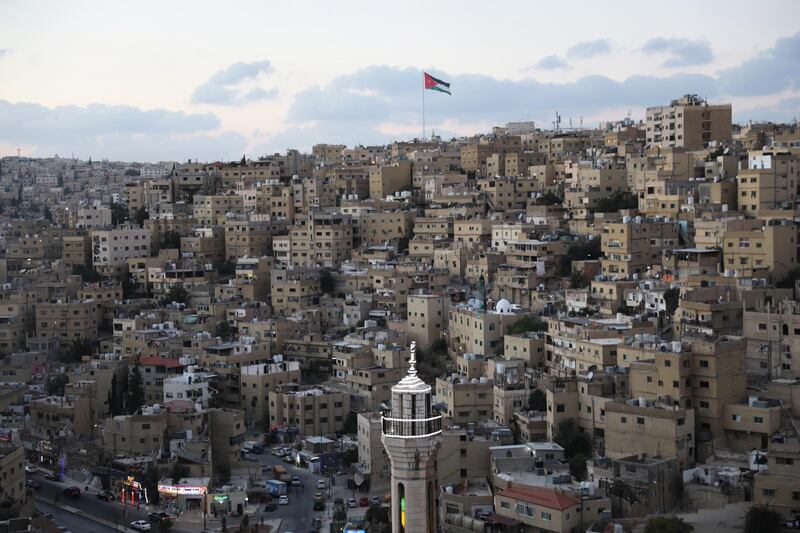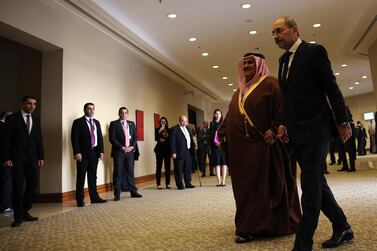London’s hosting of an investment conference on Jordan will not only help the kingdom's economy but also improve conditions for its Syrian refugee population, the UK’s Middle East minister said on Monday.
The UK and Jordan have invited about 60 countries and international organisations, including the International Monetary Fund and the World Bank, to take part in the Growth and Opportunity conference that will be held on February 28.
Alistair Burt said it would provide an opportunity for Jordan to demonstrate a series of reforms to attract private sector investment.
"Jordan's determination, His Majesty King Abdullah's very forward looking at the economy, as well as his state, in terms of politics, makes it a good bet for those who want to invest," Mr Burt told The National in an interview at the British embassy in Abu Dhabi.
The conference is built on a strong sense of partnership between UK and Jordan, he said. It aims to let Jordan explore private investment opportunities and showcase its entrepreneurship.
King Abdullah and Prime Minister Omar Al Razzaz are expected to attend the conference.
Jordan is hoping to attract investment for its tourism, information technology, logistics and professional services sectors.
Jordan's economic growth has been hit in the last few years by high unemployment and regional conflict weighing on investor sentiment and as demand generated by Syrian refugees receded, according to the IMF.
Amman hosts nearly 600,000 Syrian refugees as well as the largest number of Palestinian refugees in the Middle East outside East Jerusalem, West Bank and Gaza Strip.
“The local population has been able to look after them but there’s always an impact of numbers," Mr Burt said.
States need to help and support a host nation when it is looking after refugees, he said. If Jordan’s economy is strengthened for those refugees staying and working there, then they will have the opportunity to develop.
"The international community needs to know how to support Jordan in its economic reforms and the hosting of Syrian, Palestinian and Iraqi refugees," Mr Burt said.
Saudi Arabia, the UAE and Kuwait have pledged US$2.5 billion in aid to Jordan over the next five years and have been invited to the conference.
“The UAE has been very supportive of these efforts,” Mr Burt said.
Although President Bashar Al Assad has tightened his grip on Syria after eight years of war, some Arab countries have been urging Syrians who fled to return home.
“But people would only do that if they feel safe, this is the issue. They cannot return to those areas and face that sort of regime,” Mr Burt said.
Restricted access to returnees means it still remains unsafe for them to go home. Syrian security checks on those who seek to come back can take weeks. Not all are approved. Important documents may have been lost, while young children may have no passport at all.
"We want to see a safe and secure return of refugees of their own volition in due course,” Mr Burt said.
The UK fears that those who return will face persecution and that the regime will engage in arbitrary killings, abduction and forced detention, which have discouraged many Syrians from going home.
“The regime is acting for those who want to return as it did previously,” Mr Burt said.
He said that a UN political process on Syria must succeed.
“There has to be a different form of rule in Syria where people will be safe and not be in a state where the causes of conflict will still be there.”
Some 5.6 million Syrian refugees remain in Jordan, Turkey, Lebanon, Egypt and Iraq, according to the UN.







